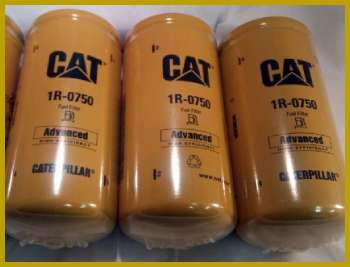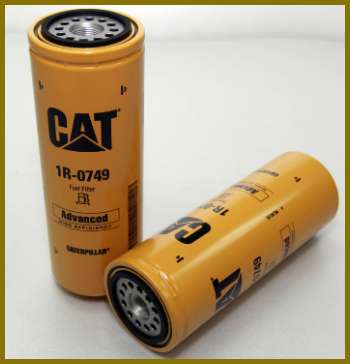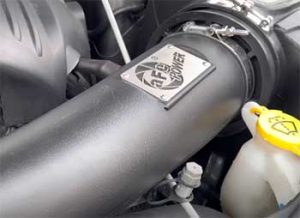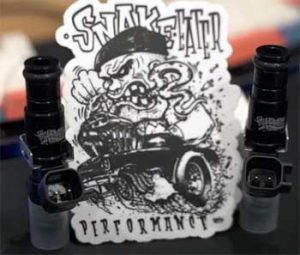When it comes to heavy-duty machinery, every component matters. One such vital component is the fuel filter, which protects your engine from harmful contaminants. Today, we’re going to take a closer look at two popular fuel filter models: the CAT 1R-0750 and the CAT 1R-0749.
We will compare their features, pros and cons, and make a final verdict on which one is the better option for you. So, buckle up as we dive deep into the world of fuel filters!
A Brief Comparison Table
| Feature | CAT 1R-0750 Fuel Filter | CAT 1R-0749 Fuel Filter |
| Filtration Efficiency | 98% for particles ≥ 2 microns | 96% for particles ≥ 4 microns |
| Filter Media | Advanced Synthetic | Cellulose |
| Service Life | Longer | Shorter |
| Compatibility | Wide range of machinery | Wide range of machinery |
| Price | Slightly more expensive | More affordable |
| Filtration Efficiency Ranking | Higher | Lower |
| Cost-effectiveness (Long Run) | Potentially higher | Potentially lower |
Differences Between CAT 1R-0750 And 1R-0749 Fuel Filters

Now that we’ve looked at the features, pros, and cons of both the CAT 1R-0750 and the CAT 1R-0749 fuel filters, it’s time to make a final verdict on which one is the better option.
While both fuel filters have their merits, there are some key differences that can help us determine which one is best suited for your needs.
- Filtration Efficiency
When it comes to filtration efficiency, the CAT 1R-0750 fuel filter has a clear edge, with its ability to remove particles as small as 2 microns at a 98% efficiency rate.
This means that your engine will be better protected from harmful contaminants, potentially prolonging its lifespan and reducing the risk of costly damages.
- Service Life
The CAT 1R-0750 fuel filter offers a longer service life compared to the 1R-0749, thanks to its advanced synthetic filter media.
While the 1R-0749 may be more affordable upfront, the need for more frequent filter changes could make it less cost-effective in the long run.
- Price and Budget Considerations
For those on a tight budget, the CAT 1R-0749 fuel filter may be a more attractive option due to its lower price. However, it’s essential to weigh the cost savings against the potential risks associated with the lower filtration efficiency and shorter service life.
Investing in the CAT 1R-0750 fuel filter could be more cost-effective in the long run if it helps prolong your engine’s lifespan and reduces the risk of expensive repairs.
CAT 1R-0750 Fuel Filter: Overview and Features
The CAT 1R-0750 fuel filter is a popular choice among heavy machinery owners. This filter is designed to remove particles as small as 2 microns, ensuring that your engine stays free of contaminants and runs efficiently.
Pros of the CAT 1R-0750 Fuel Filter
- High Filtration Efficiency: The CAT 1R-0750 fuel filter boasts a 98% efficiency rate in removing particles as small as 2 microns. This means that it can effectively capture and remove even the smallest contaminants, protecting your engine from potential damages.
- Longer Service Life: With its advanced synthetic filter media, the CAT 1R-0750 fuel filter offers a longer service life compared to other fuel filters. This means fewer filter changes, resulting in cost savings in the long run.
- Wide Compatibility: The CAT 1R-0750 fuel filter is compatible with a wide range of heavy machinery, making it a versatile choice for those with multiple machines in their fleet.
Cons of the CAT 1R-0750 Fuel Filter
- Price: The CAT 1R-0750 fuel filter is slightly more expensive than some other fuel filters in the market. However, considering its benefits, many users believe that the additional cost is worth the investment.
CAT 1R-0749 Fuel Filter: Overview and Features

The CAT 1R-0749 fuel filter is another popular choice in the heavy machinery industry.
This fuel filter is designed to remove particles as small as 4 microns, offering an efficient solution to protect your engine from contaminants.
Pros of the CAT 1R-0749 Fuel Filter
- Filtration Efficiency: The CAT 1R-0749 fuel filter is capable of removing 96% of particles as small as 4 microns. While it may not be as efficient as the 1R-0750, it still provides an adequate level of protection for your engine.
- Cost-effective: The CAT 1R-0749 fuel filter is generally more affordable than the 1R-0750, making it an attractive option for those on a tight budget.
- Compatibility: Like the 1R-0750, the CAT 1R-0749 fuel filter is also compatible with a wide range of heavy machinery, offering versatility for fleet owners.
Cons of the CAT 1R-0749 Fuel Filter
- Shorter Service Life: The CAT 1R-0749 fuel filter has a shorter service life compared to the 1R-0750 due to its cellulose filter media. This means more frequent filter changes, which may offset the initial cost savings.
- Lower Filtration Efficiency: The CAT 1R-0749 fuel filter has a lower filtration efficiency compared to the 1R-0750, which means it may not capture and remove contaminants as effectively. This could potentially expose your engine to more contaminants, increasing the risk of damage.
The Final Verdict
After analyzing the features, pros, and cons of both the CAT 1R-0750 and the CAT 1R-0749 fuel filters, it’s clear that the 1R-0750 offers superior filtration efficiency and a longer service life.
While it may come at a higher price, the investment in a high-quality fuel filter like the CAT 1R-0750 can pay off in the long run by protecting your engine from contaminants, prolonging its lifespan, and reducing the need for costly repairs.
However, for those on a tight budget, the CAT 1R-0749 fuel filter is still a viable option, offering adequate filtration efficiency and compatibility with a wide range of heavy machinery. It’s essential to weigh your budget constraints against the potential risks and benefits of each fuel filter before making a final decision.
In conclusion, the CAT 1R-0750 fuel filter emerges as the winner in this showdown, thanks to its superior filtration efficiency and longer service life.
Investing in this high-quality fuel filter can provide peace of mind knowing that your engine is protected from harmful contaminants, ultimately saving you money on repairs and prolonging the life of your heavy machinery.



